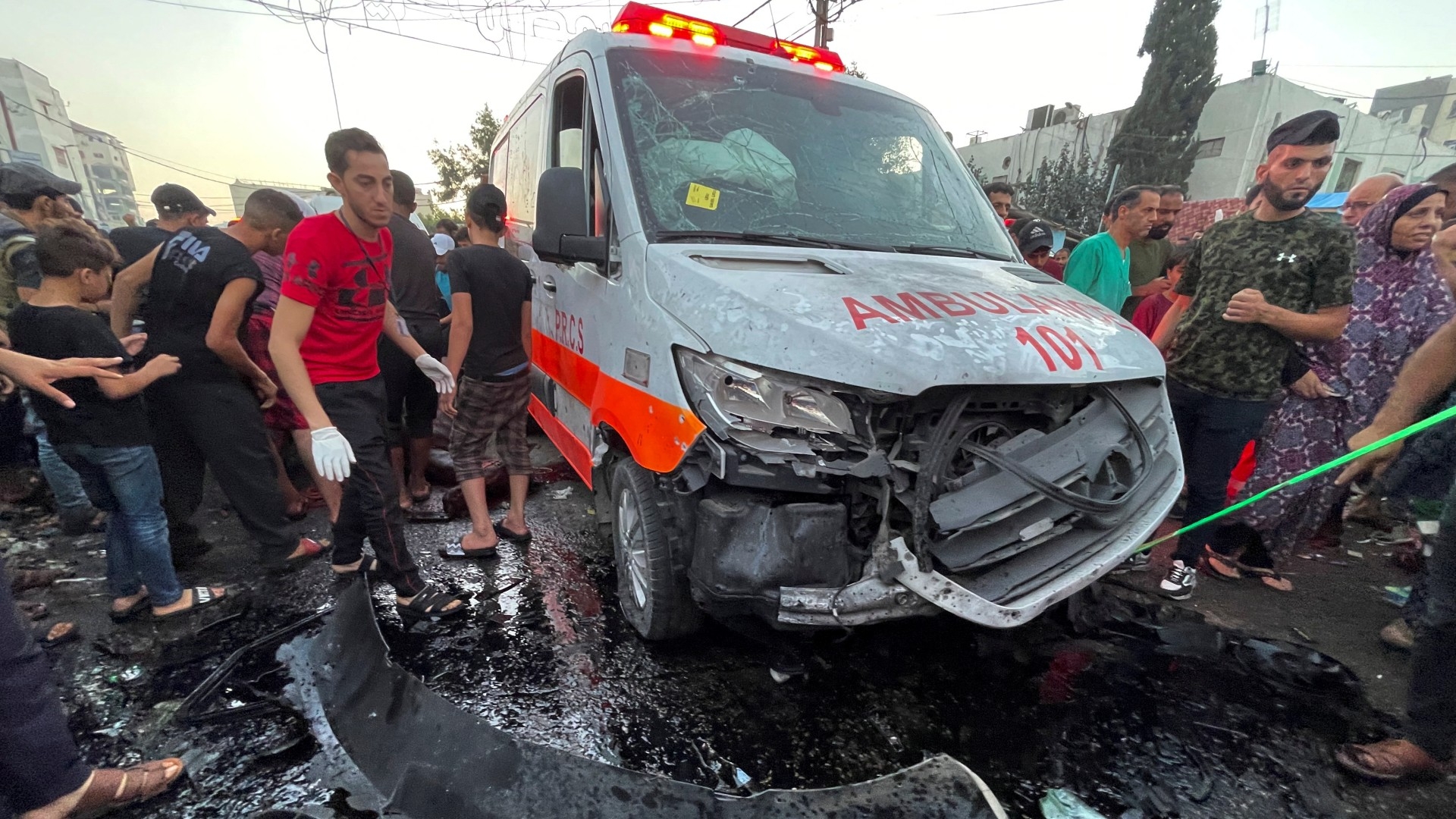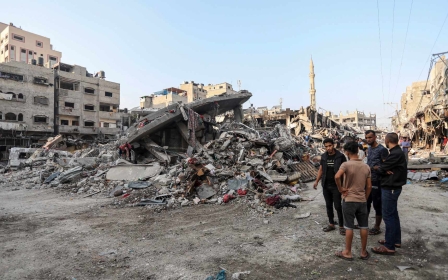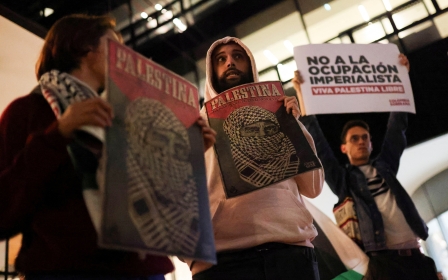Israel-Palestine war: 100 Israeli doctors call for Gaza hospitals to be bombed

Around 100 Israeli doctors have signed an open letter calling on the army to bomb hospitals in Gaza, saying that they are "infrastructure used by Hamas", according to Israeli media.
The letter, written in Hebrew, reads: "Terrorist organisations are using hospitals as their headquarters... for years the citizens of Israel have suffered from murderous terror.
"The residents of Gaza saw fit to turn hospitals into terrorist nests to take advantage of western morality, they are the ones who brought destruction upon themselves; terrorism must be eliminated everywhere. Attacking terrorist headquarters is the right and the duty of the Israeli army."
The letter also said that it is an "obligation" for the army to target hospitals allegedly used to shelter Hamas, which it described as "worse than ISIS [the Islamic State group] and must be destroyed to the ground".
"Those who confuse hospitals with terrorism must understand that hospitals are not a safe place for them," the doctors wrote.
New MEE newsletter: Jerusalem Dispatch
Sign up to get the latest insights and analysis on Israel-Palestine, alongside Turkey Unpacked and other MEE newsletters
The letter has been widely condemned online.
Ghassan Abu Sitta, a British-Palestinian surgeon who is currently in Gaza, took to social media platform X, formerly Twitter, to criticise the letter.
"100 Israeli doctors sign a petition calling for the destruction of all hospitals in Gaza. Lovely people with a great collegiate attitude. They must have taken the same Hippocratic oath as Harold Shipman," he wrote, referring to an English doctor and serial killer who was sentenced to life imprisonment in 2000.
Bombing of hospitals
Since the start of the war on 7 October, Israel has repeatedly bombed hospitals.
In response to an unprecedented attack on southern Israeli towns, the Israeli army has launched its most agressive bombing campaign on Gaza, destroying entire neighbourhoods and repeatedly bombing hospitals and civilian infrustructure.
In mid-October, the Israeli army bombed al-Ahli hospital, killing at least 471 people.
The vicinity of the al-Quds hospital has also been repeatedly bombed for over a week, causing wounded patients to suffer from smoke inhalation. The bombing in close proximity to the hospital, where 14,000 Palestinians are sheltering, has caused damage to the hospital and left people in a state of panic.
On 3 November, Israeli jets bombed the entrance of Gaza's biggest hospital, al-Shifa, leaving at least 15 dead and 60 wounded, according to the Palestinian Red Crescent. Bombs were also dropped in the courtyards of the Indonesian hospital.
"I am horrified by the reported attack in Gaza on an ambulance convoy outside al-Shifa hospital," UN chief Antonio Guterres said on Friday evening. "The images of bodies strewn on the street outside the hospital are harrowing."
"For nearly one month, civilians in Gaza, including children and women, have been besieged, denied aid, killed, and bombed out of their homes," Guterres added. "This must stop."
Wounded Palestinians and foreign passport holders attempting to leave Gaza through the Rafah crossing have been prevented from doing since Saturday, due to Israeli bombings, according to medical and security sources who spoke to Reuters.
One of the security sources and the medical source said the evacuations were halted after an Israeli strike on Friday on an ambulance transporting wounded people in Gaza.
Ambulances have also been targeted throughout the duration of the war, with at least 15 rendered totally out of use.
This article is available in French on Middle East Eye French edition.
Middle East Eye delivers independent and unrivalled coverage and analysis of the Middle East, North Africa and beyond. To learn more about republishing this content and the associated fees, please fill out this form. More about MEE can be found here.




